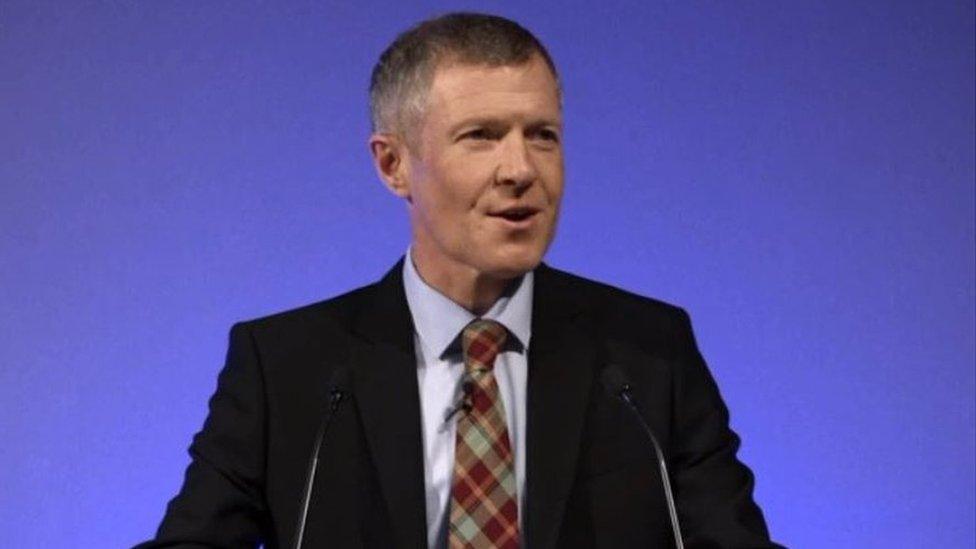Lib Dem conference: Cable's constitutional questions
- Published
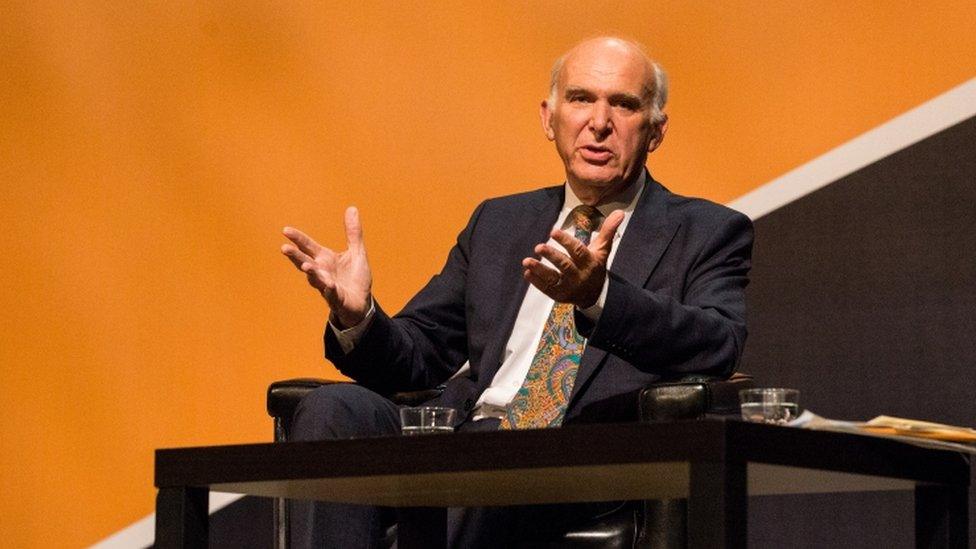
Vince Cable will speak at the conference on Saturday afternoon
Vince Cable, we are reliably told, will argue today that the SNP should back the notion of a second EU referendum, on the terms of the deal which will eventually emerge from negotiations.
This pitch will be delivered by Sir Vince at the Aviemore annual conference of the Scottish Liberal Democrats.
It seems certain, given the prevailing climate here in the Highlands, that bright sunshine will attend Sir Vince's arrival. It is less certain, however, that the Nationalists will instantly beam in response to his proposal.
According to the Lib Dem leader, backing EURef2 is akin to a public duty for those who oppose Brexit. He extends that sentiment to Scotland's devolved party of government.
Sir Vince puts it thus. The only way to "exit from Brexit" is to hold a further plebiscite. Support for that, he says, is "building in strength every week".
If, he posits, there is a move in the House of Lords to back such a second poll, then it would be up to the Commons to assent or reject. At which point, the standpoint of the SNP would be crucial.
There are, of course, several ifs and buts in that syllogism. But let us look at the question of the SNP position. Nicola Sturgeon and her party are avowed opponents of Brexit. They have consistently described it as economically damaging, diplomatically thoughtless and, as far as Scotland is concerned, undemocratic in that the majority of people north of the Border voted to remain.
Each of those arguments is open to challenge by opponents. But let us consider tactics, for now, in response to Sir Vince's suggestion. What might Ms Sturgeon say in reply?
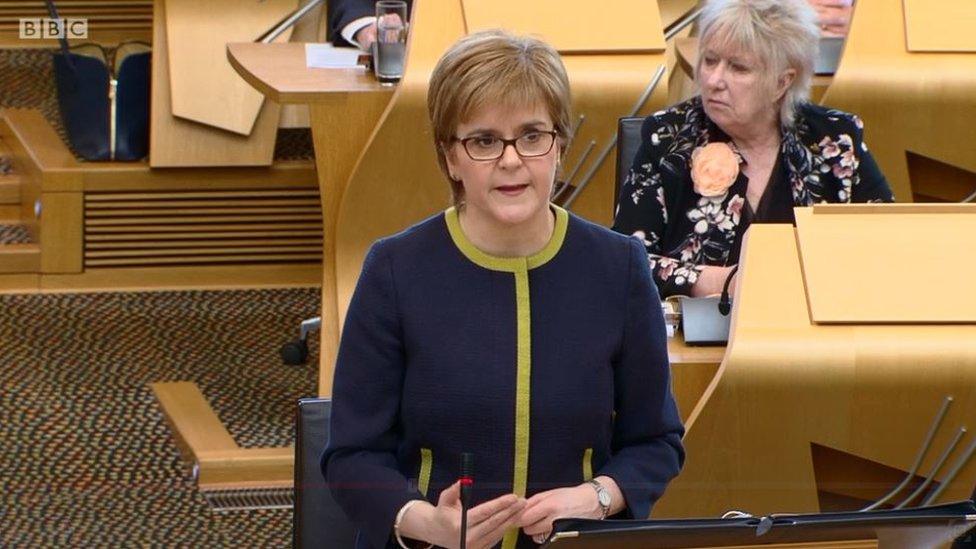
Nicola Sturgeon has previously said a second Brexit vote could be "very hard to resist"
To be clear, she has conceded that there may, ultimately, be a compelling case for holding a second plebiscite. But she is not there yet.
Firstly, there is the question of her supporters. Liberal Democrat voters voted pretty solidly for Remain. By contrast, a significant tranche of SNP voters opted for Leave. Nicola Sturgeon would have to weigh the impact upon those voters of backing a second poll.
Secondly, there is longer term strategy. Ms Sturgeon would not necessarily want to create a precedent for the issue of independence. She might not want a situation where it would be automatically assumed that any independence vote would result in a further plebiscite on the negotiated terms.
She might favour such a position - if there was evidence that people would be more inclined to support the concept of independence if they knew a second vote would result. Alternatively, she might be leery. Again, she would want to weigh the impact.
Wider considerations
Of course, there are wider considerations with regard to a second poll which impact upon the Lib Dems, as they confer in Aviemore.
One, why should the Lib Dems back a second EU poll when they are so adamant against indyref2? Indeed, Willie Rennie said in his speech that the SNP should dump such a notion entirely - and "move on".
Aren't they just arguing for EURef2 because they didn't get the result they wanted, by contrast with the independence referendum?
They say not. They say the difference is that the independence referendum was held upon a precise prospectus, the White Paper. They dissented from the content - but it was at least a clear choice for the people.
By contrast, they argue, the EU referendum was founded upon imprecise sentiment, with no detailed proposals from either side.
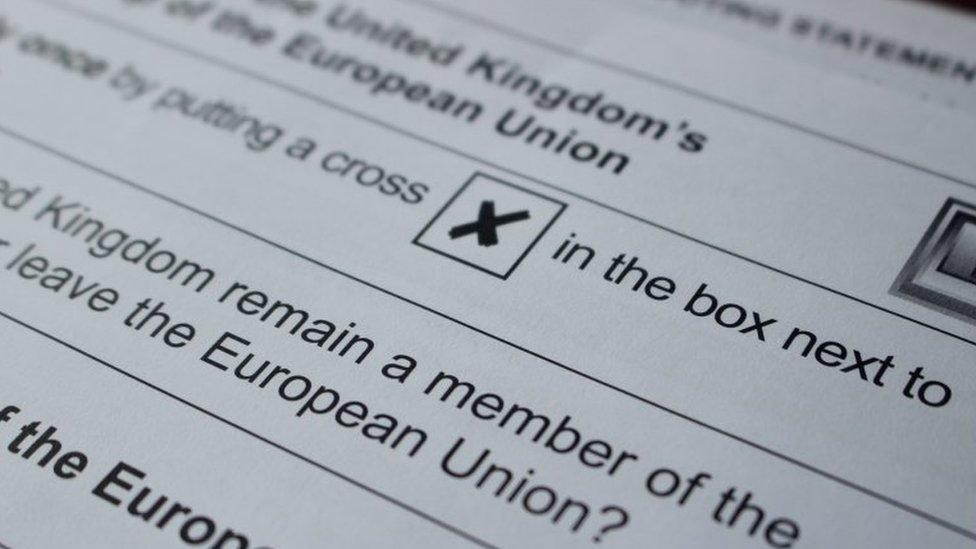
Two, would a second EU referendum produce a different result? The Liberal Democrats believe fervently that it would, that people would be persuaded to share their view that Brexit will be calamitous.
But is that well founded? People, in general, do not like being asked to vote. They particularly dislike being invited to vote twice.
Might some Remainers feel that the second plebiscite is superfluous and, perhaps, misplaced? Might they abstain or even switch as a consequence? Might the zeal on the Leave side be stimulated, by contrast?
Depends, I suppose, upon the perception of the final Brexit deal. If it is palpably a stinker - and is widely seen as such - then perhaps opinion would indeed alter.
But will it be as clear cut as that, at the point of concluding the deal? Is it not more likely that it will be a constructive fudge, the impact of which will only truly be felt, either way, after a prolonged period?
There is another calculation for the LibDems. Will they gain electorally for standing firm against Brexit? And, if so, why is such a gain not already showing in the polls?
It is a puzzle for the party. Across Britain, why are they not able to corral a sizeable chunk of the Remain voters into their camp? In Scotland, why are they seemingly stuck at a relatively low poll rating?
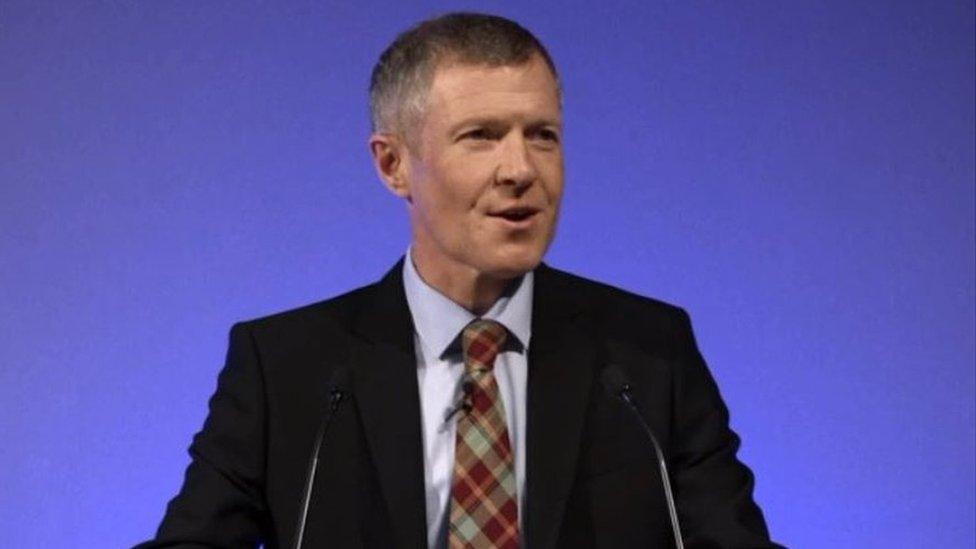
Willie Rennie used his speech to attack Scottish Tory leader Ruth Davidson
The answer their strategists offer is two-fold. Firstly, they believe that Brexit has put customary politics on hold. That people are suspending electoral decisions, to some extent, until there is clarity over Brexit, if such a thing can be envisaged.
To that, I would add a point I have made frequently. That those who voted Remain, for the most part, took that decision on balance, after weighing options, rather than from convinced enthusiasm. That consequently their EU support may be relatively thin and no clear foundation for other electoral choices.
Secondly, in Scotland, Lib Dems believe that Ruth Davidson is successfully garnering centre ground support for the Tories through the strength of her personal charisma.
Hence Willie Rennie's virulent attack upon her, designed to impress upon voters that backing Ruth involves backing policies which, the Lib Dems calculate, folk will find inimical.
Then there are other strategic calculations for the party. Could the Finance Secretary Derek Mackay seek out the Lib Dems for a budget deal next year, if the Greens stick to their demand for a complete overhaul of local government funding (which he dislikes)?
That is indeed possible - and it is possible, further, that the Lib Dems might respond. Mr Mackay might find that the Lib Dems steer a more moderate path than the Greens, at least if Patrick Harvie et al adhere to their radical roots.
Snag the last time - and snag next time - would be that the Lib Dems would be unhappy shoring up a party with independence on its immediate mind. That prevented coalition talks between the two parties in the hung Parliament after 2007.
But what if indyref2 has been put on hold once more? These are all, it should be said, relatively imprecise calculations - and not in the sole control of Willie Rennie and chums. But the Lib Dems must cling to such flimsy material as they seek to rebuild a base from which to wield shared power.
- Published21 April 2018
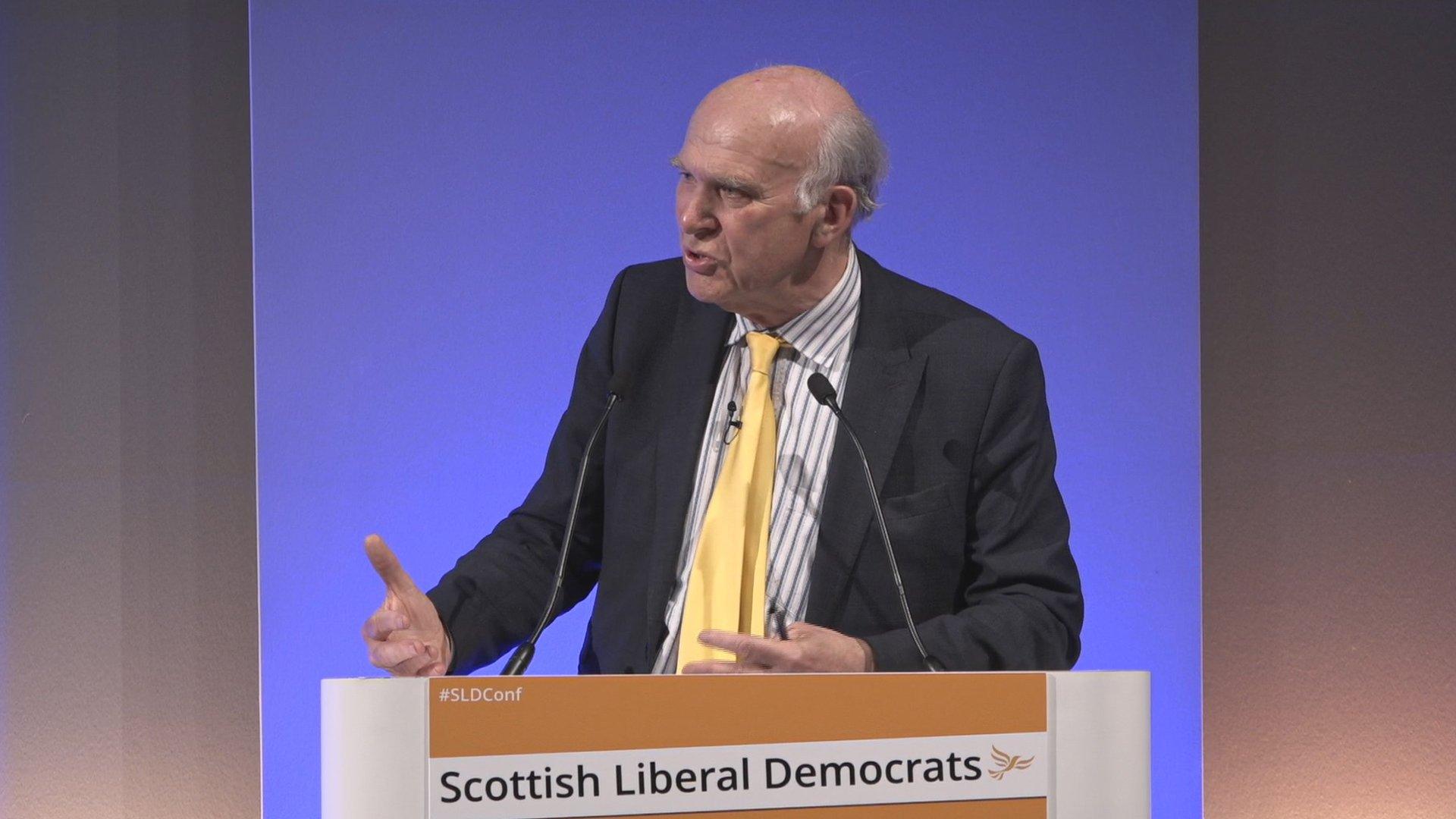
- Published20 April 2018
